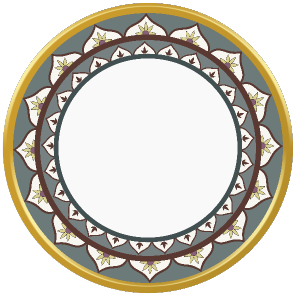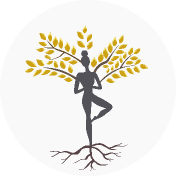

0


0

Embracing wellness with Reiki healing
Reiki is a form of alternative therapy that originated in Japan in the early 20th century. It involves the use of the practitioner’s hands to channel energy and promote healing. The word “Reiki” is derived from two Japanese words: “rei,” meaning universal, and “ki,” meaning life energy or vital force. Together, Reiki can be translated as “universal life energy.”


What can you expect
from
this session?

Book a session with
Banani Das Dhar

Ask guidance on the
matter of concern

Implement the
guidance in your life
1. Energy Channeling
In Reiki, practitioners believe that there is a universal life energy that flows through all living things. The practitioner serves as a channel for this energy, directing it through their hands to the recipient. The energy is thought to promote healing on physical, emotional, and spiritual levels.
2. Hands-On or Distant Healing
Reiki can be administered through either hands-on or distant healing. In a hands-on session, the practitioner lightly places their hands on or near the recipient’s body, allowing the energy to flow. In distant healing, the practitioner can send Reiki energy across distances, even if the recipient is not physically present.
3. Chakra Balancing
Reiki is often associated with the concept of chakras, which are energy centers in the body. Practitioners may focus on balancing and clearing energy blockages in the chakras to promote overall well-being.
4. Relaxation and Stress Reduction
One of the primary benefits reported by recipients of Reiki is deep relaxation and stress reduction. The calming effect of the energy is believed to help the body enter a state of balance and harmony.
5. Holistic Healing
Reiki is considered a holistic healing modality, addressing not only physical ailments but also emotional and spiritual imbalances. It is often used as a complementary therapy alongside conventional medical treatments.
6. Non-Invasive
Reiki is non-invasive, as it involves a light touch or no physical contact at all. This makes it suitable for individuals who may be sensitive to touch or prefer a hands-off approach to healing.
7. Self-Healing
Reiki can be practiced for self-healing. Individuals who have received Reiki attunements from a Reiki master can use the technique on themselves for relaxation and well-being.
8. Spiritual Connection
While Reiki is not associated with any specific religious belief, some practitioners describe it as a spiritual practice that fosters a sense of connection with a higher power, the universe, or one’s own spiritual essence.
Note to the enrollers
t’s essential to note that the efficacy of Reiki is a subject of ongoing debate in the scientific and medical communities. Some people find it to be a valuable and transformative experience, while others approach it with skepticism. As with any alternative therapy, individuals interested in Reiki should research and consider it as part of a holistic approach to well-being, consulting with healthcare professionals as needed.
1. Relaxation and Stress Reduction
One of the primary benefits of Reiki is its ability to induce a state of deep relaxation. The calming effect of Reiki can help reduce stress and tension, promoting a sense of peace and tranquility.
2. Pain Relief
Some individuals report experiencing pain relief after Reiki sessions. It is believed that the energy flow and relaxation induced by Reiki may contribute to easing physical discomfort.
3. Improved Sleep
Reiki sessions may lead to better sleep for some individuals. The relaxation and stress reduction associated with Reiki can positively impact sleep patterns and contribute to a more restful night.
4. Enhanced Emotional Well-Being
Reiki is often used to address emotional imbalances and promote emotional healing. Many people report feeling a sense of emotional release, balance, and well-being after Reiki sessions.
5. Energy Balancing
Reiki is based on the idea of balancing the body’s energy centers, or chakras. Practitioners believe that this balancing can lead to improved overall energy flow and vitality.
6. Clarity and Focus
Some individuals find that Reiki sessions contribute to mental clarity and improved focus. The relaxation induced by Reiki may help clear the mind and enhance cognitive function.
7. Self-Awareness and Personal Growth
Reiki is often seen as a tool for self-discovery and personal growth. Practitioners and recipients alike may experience increased self-awareness and a deeper understanding of themselves.
8. Spiritual Connection
While not tied to any specific religious belief, Reiki is considered by some as a spiritual practice. It may foster a sense of connection with a higher power, the universe, or one’s own spiritual essence.
9. Complementary Support for Illness
Some individuals use Reiki as a complementary therapy alongside conventional medical treatments. It is important to note that Reiki is not a substitute for medical care, but some people find it beneficial in conjunction with other healthcare practices.
10. Holistic Healing
Reiki is viewed as a holistic healing modality, addressing not only physical symptoms but also emotional and spiritual aspects. This holistic approach is appreciated by those seeking a comprehensive and integrative approach to well-being.
Note to the enrollers
It’s essential to approach Reiki with an open mind and understand that its benefits are often subjective. While many people report positive experiences with Reiki, scientific research on its effectiveness is still evolving. As with any complementary therapy, individuals considering Reiki should consult with healthcare professionals and choose experienced practitioners.
